-
 Bitcoin
Bitcoin $93,703.3570
5.80% -
 Ethereum
Ethereum $1,805.5412
10.84% -
 Tether USDt
Tether USDt $1.0002
0.04% -
 XRP
XRP $2.2747
8.18% -
 BNB
BNB $611.9615
1.13% -
 Solana
Solana $152.9011
9.15% -
 USDC
USDC $1.0000
0.01% -
 Dogecoin
Dogecoin $0.1835
11.61% -
 Cardano
Cardano $0.7046
9.96% -
 TRON
TRON $0.2456
-0.35% -
 Chainlink
Chainlink $15.0070
11.46% -
 Avalanche
Avalanche $22.8664
12.07% -
 Sui
Sui $2.8880
24.91% -
 Stellar
Stellar $0.2721
9.08% -
 UNUS SED LEO
UNUS SED LEO $9.0790
2.72% -
 Shiba Inu
Shiba Inu $0.0...01369
8.86% -
 Hedera
Hedera $0.1857
7.56% -
 Toncoin
Toncoin $3.1171
6.87% -
 Bitcoin Cash
Bitcoin Cash $359.5358
3.37% -
 Polkadot
Polkadot $4.1340
9.39% -
 Litecoin
Litecoin $84.2533
5.86% -
 Hyperliquid
Hyperliquid $18.9009
4.15% -
 Dai
Dai $1.0001
0.02% -
 Bitget Token
Bitget Token $4.5765
2.93% -
 Ethena USDe
Ethena USDe $0.9994
0.02% -
 Pi
Pi $0.6667
4.97% -
 Monero
Monero $228.3134
5.69% -
 Pepe
Pepe $0.0...09214
12.87% -
 Uniswap
Uniswap $6.0548
12.05% -
 Aptos
Aptos $5.3707
8.53%
Is DeFi reliable?
Despite concerns about reliability, DeFi's revolutionary force in finance continues to offer an alternative to centralized systems, with key areas of attention being security, volatility, regulatory uncertainties, counterparty risk, and scams/rug pulls.
Sep 30, 2024 at 11:11 am
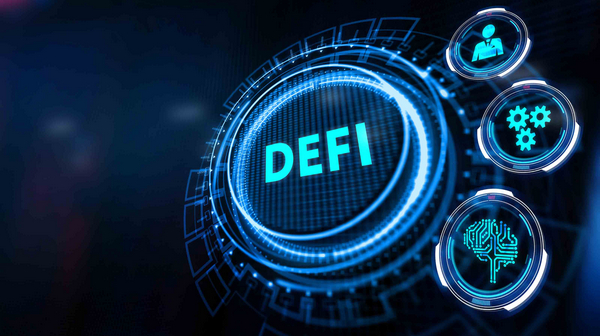
Is DeFi Reliable?
Decentralized finance (DeFi) has emerged as a revolutionary force in the financial landscape, offering an alternative to traditional centralized systems. However, concerns about its reliability often arise among users.
1. Security:
DeFi protocols generally operate on blockchain networks known for their security and immutability. Smart contracts, the backbone of DeFi applications, automate transactions and reduce the risk of human error or manipulation. However, vulnerabilities within these contracts can occasionally lead to hacks.
2. Volatility:
Cryptocurrency markets are known for their volatility. DeFi investments can be influenced by external events and market fluctuations, resulting in significant price swings. Users must be aware of these risks and invest cautiously.
3. Regulatory Uncertainties:
The regulatory landscape for DeFi is still in its early stages. Different jurisdictions have varying approaches to regulating cryptocurrency and DeFi activities. This lack of clarity can introduce uncertainties and risks for users.
4. Counterparty Risk:
In DeFi, users often interact with anonymous counterparties. While decentralization promotes transparency, it also introduces risks such as fraud or default. Users should research and assess the reliability of counterparties before executing transactions.
5. Scams and Rug Pulls:
Fraudulent DeFi projects and rug pulls, where developers abandon projects after attracting investments, pose significant risks to users. Due diligence and vigilance are crucial to avoid falling victim to such scams.
How to Enhance DeFi Reliability:
- Educate Consumers: Increasing awareness about DeFi's risks and best practices can empower users to make informed decisions.
- Robust Security Protocols: Implementing advanced security measures and regularly auditing protocols can minimize vulnerabilities and protect user funds.
- Stable Coins: Using stable coins backed by fiat currencies can reduce the impact of cryptocurrency volatility on DeFi investments.
- Clear Regulatory Frameworks: Governments can establish comprehensive regulations for DeFi, providing clarity and safeguarding user interests.
- Collaborative Initiatives: Industry stakeholders can collaborate to create self-policing mechanisms and information-sharing platforms to combat scams and fraudulent activities.
Conclusion:
While DeFi offers significant potential for innovation and financial inclusion, its reliability remains a concern. By addressing security vulnerabilities, reducing volatility, clarifying regulatory frameworks, and promoting vigilance among users, DeFi can evolve into a more trustworthy and accessible system for all.
Disclaimer:info@kdj.com
The information provided is not trading advice. kdj.com does not assume any responsibility for any investments made based on the information provided in this article. Cryptocurrencies are highly volatile and it is highly recommended that you invest with caution after thorough research!
If you believe that the content used on this website infringes your copyright, please contact us immediately (info@kdj.com) and we will delete it promptly.
- U.S. spot Bitcoin (BTC) and Ethereum (ETH) exchange-traded funds (ETFs)
- 2025-04-23 19:55:13
- Bitcoin (BTC) Whales Return to Binance as BTC Price Recovers Above $90,00
- 2025-04-23 19:55:13
- Cantor Fitzgerald Makes a Major Move into the Cryptocurrency Space with the Creation of a $300M Bitcoin Acquisition Vehicle
- 2025-04-23 19:50:13
- Tesla Continues to Hold Approximately $951 Million Worth of Bitcoin
- 2025-04-23 19:50:13
- Bitcoin (BTC) Price Just Smashed Above $90K Again and Now Smart Money Are Racing to Buy BTCBULL Before BTC USD Hits 6 Figures
- 2025-04-23 19:45:12
- Chainlink (LINK) Price Today Holds Steady Near Crucial Levels as 1B Tokens Flow to Market
- 2025-04-23 19:45:12
Related knowledge
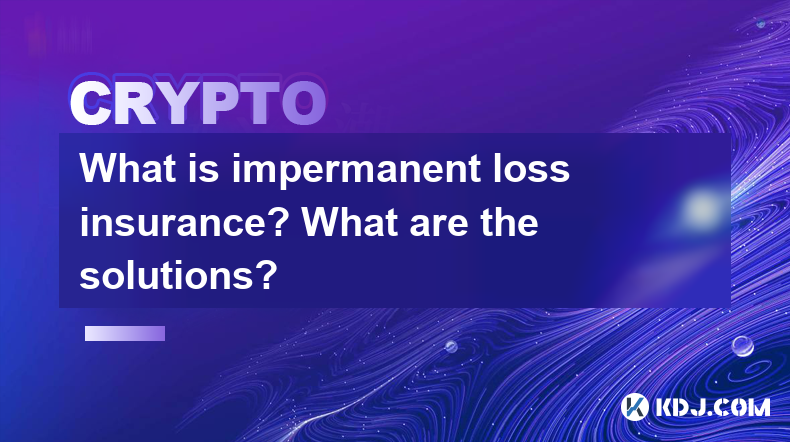
What is impermanent loss insurance? What are the solutions?
Apr 12,2025 at 01:14am
What is Impermanent Loss Insurance? What are the Solutions? Impermanent loss is a significant concern for liquidity providers in decentralized finance (DeFi) platforms. It occurs when the price of tokens in a liquidity pool changes compared to when they were deposited, leading to a potential loss if the provider decides to withdraw their liquidity. To m...
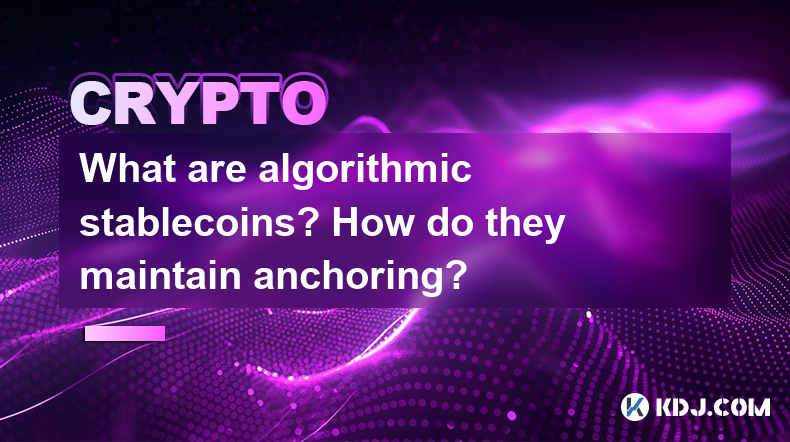
What are algorithmic stablecoins? How do they maintain anchoring?
Apr 12,2025 at 11:35am
Algorithmic stablecoins represent a fascinating and innovative segment within the cryptocurrency ecosystem. These digital assets are designed to maintain a stable value, typically pegged to a fiat currency like the US dollar, through the use of algorithms rather than traditional collateral. This approach distinguishes them from other types of stablecoin...
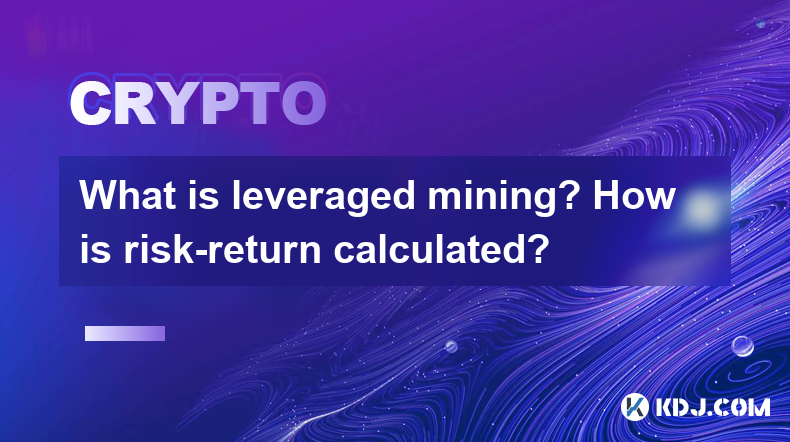
What is leveraged mining? How is risk-return calculated?
Apr 11,2025 at 04:07pm
What is Leveraged Mining? How is Risk-Return Calculated? Leveraged mining is a strategy used in the cryptocurrency space where miners borrow funds to increase their mining capacity and potential returns. This approach can amplify both profits and losses, making it a high-risk, high-reward endeavor. Understanding how to calculate the risk and return asso...
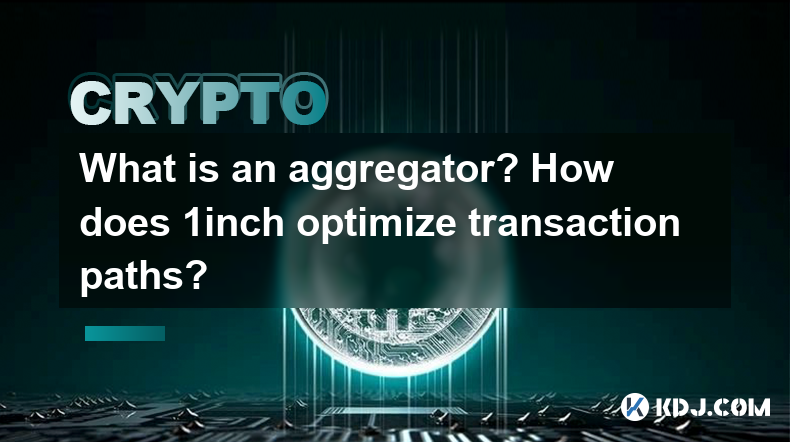
What is an aggregator? How does 1inch optimize transaction paths?
Apr 12,2025 at 05:00pm
An aggregator in the cryptocurrency space is a tool that compiles and compares data from multiple decentralized exchanges (DEXs) to find the best possible trading routes and prices for users. Aggregators are essential for traders looking to optimize their transactions, as they can automatically search through various liquidity sources to ensure the most...
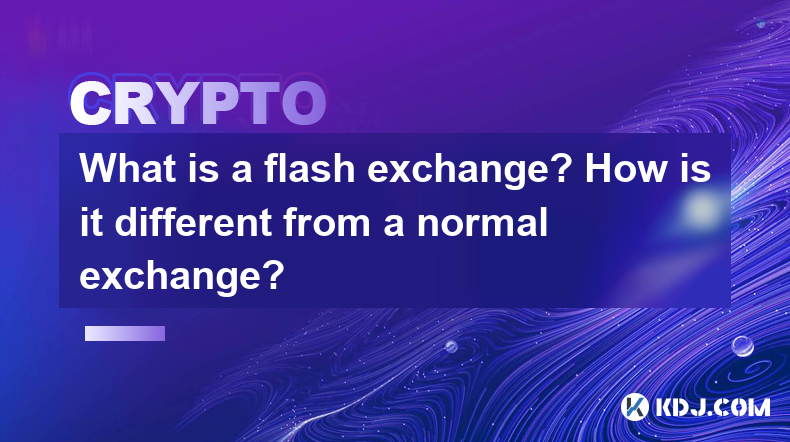
What is a flash exchange? How is it different from a normal exchange?
Apr 16,2025 at 03:43pm
A flash exchange, also known as a flash swap, is a relatively new concept within the cryptocurrency space that has gained significant attention due to its innovative approach to trading. Unlike traditional exchanges, flash exchanges leverage the power of decentralized finance (DeFi) protocols to enable instant, collateral-free trades. In this article, w...
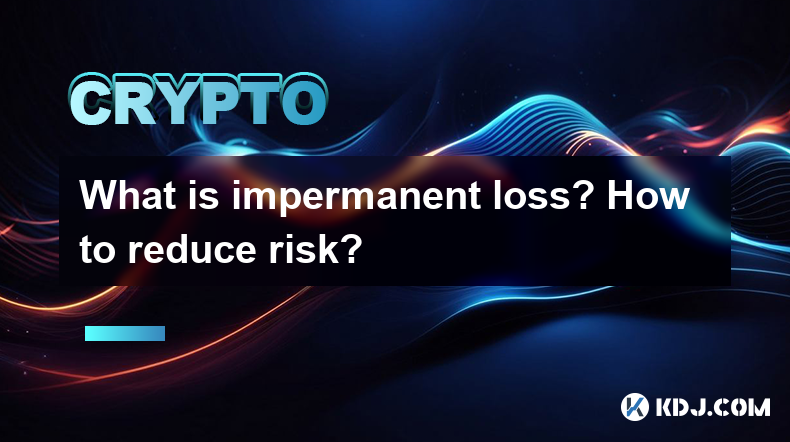
What is impermanent loss? How to reduce risk?
Apr 16,2025 at 11:14pm
What is Impermanent Loss? How to Reduce Risk? Impermanent loss is a term that frequently surfaces in the world of decentralized finance (DeFi), particularly when discussing liquidity provision on automated market makers (AMMs) like Uniswap or SushiSwap. Understanding this concept is crucial for anyone looking to engage in liquidity provision, as it dire...

What is impermanent loss insurance? What are the solutions?
Apr 12,2025 at 01:14am
What is Impermanent Loss Insurance? What are the Solutions? Impermanent loss is a significant concern for liquidity providers in decentralized finance (DeFi) platforms. It occurs when the price of tokens in a liquidity pool changes compared to when they were deposited, leading to a potential loss if the provider decides to withdraw their liquidity. To m...

What are algorithmic stablecoins? How do they maintain anchoring?
Apr 12,2025 at 11:35am
Algorithmic stablecoins represent a fascinating and innovative segment within the cryptocurrency ecosystem. These digital assets are designed to maintain a stable value, typically pegged to a fiat currency like the US dollar, through the use of algorithms rather than traditional collateral. This approach distinguishes them from other types of stablecoin...

What is leveraged mining? How is risk-return calculated?
Apr 11,2025 at 04:07pm
What is Leveraged Mining? How is Risk-Return Calculated? Leveraged mining is a strategy used in the cryptocurrency space where miners borrow funds to increase their mining capacity and potential returns. This approach can amplify both profits and losses, making it a high-risk, high-reward endeavor. Understanding how to calculate the risk and return asso...

What is an aggregator? How does 1inch optimize transaction paths?
Apr 12,2025 at 05:00pm
An aggregator in the cryptocurrency space is a tool that compiles and compares data from multiple decentralized exchanges (DEXs) to find the best possible trading routes and prices for users. Aggregators are essential for traders looking to optimize their transactions, as they can automatically search through various liquidity sources to ensure the most...

What is a flash exchange? How is it different from a normal exchange?
Apr 16,2025 at 03:43pm
A flash exchange, also known as a flash swap, is a relatively new concept within the cryptocurrency space that has gained significant attention due to its innovative approach to trading. Unlike traditional exchanges, flash exchanges leverage the power of decentralized finance (DeFi) protocols to enable instant, collateral-free trades. In this article, w...

What is impermanent loss? How to reduce risk?
Apr 16,2025 at 11:14pm
What is Impermanent Loss? How to Reduce Risk? Impermanent loss is a term that frequently surfaces in the world of decentralized finance (DeFi), particularly when discussing liquidity provision on automated market makers (AMMs) like Uniswap or SushiSwap. Understanding this concept is crucial for anyone looking to engage in liquidity provision, as it dire...
See all articles
























































































